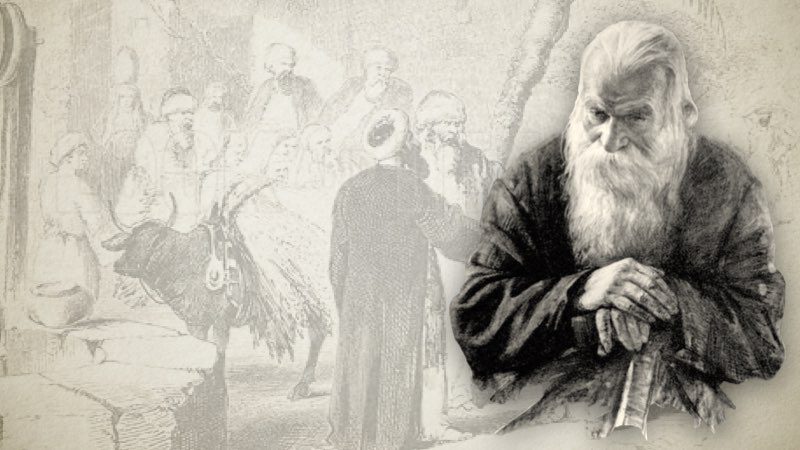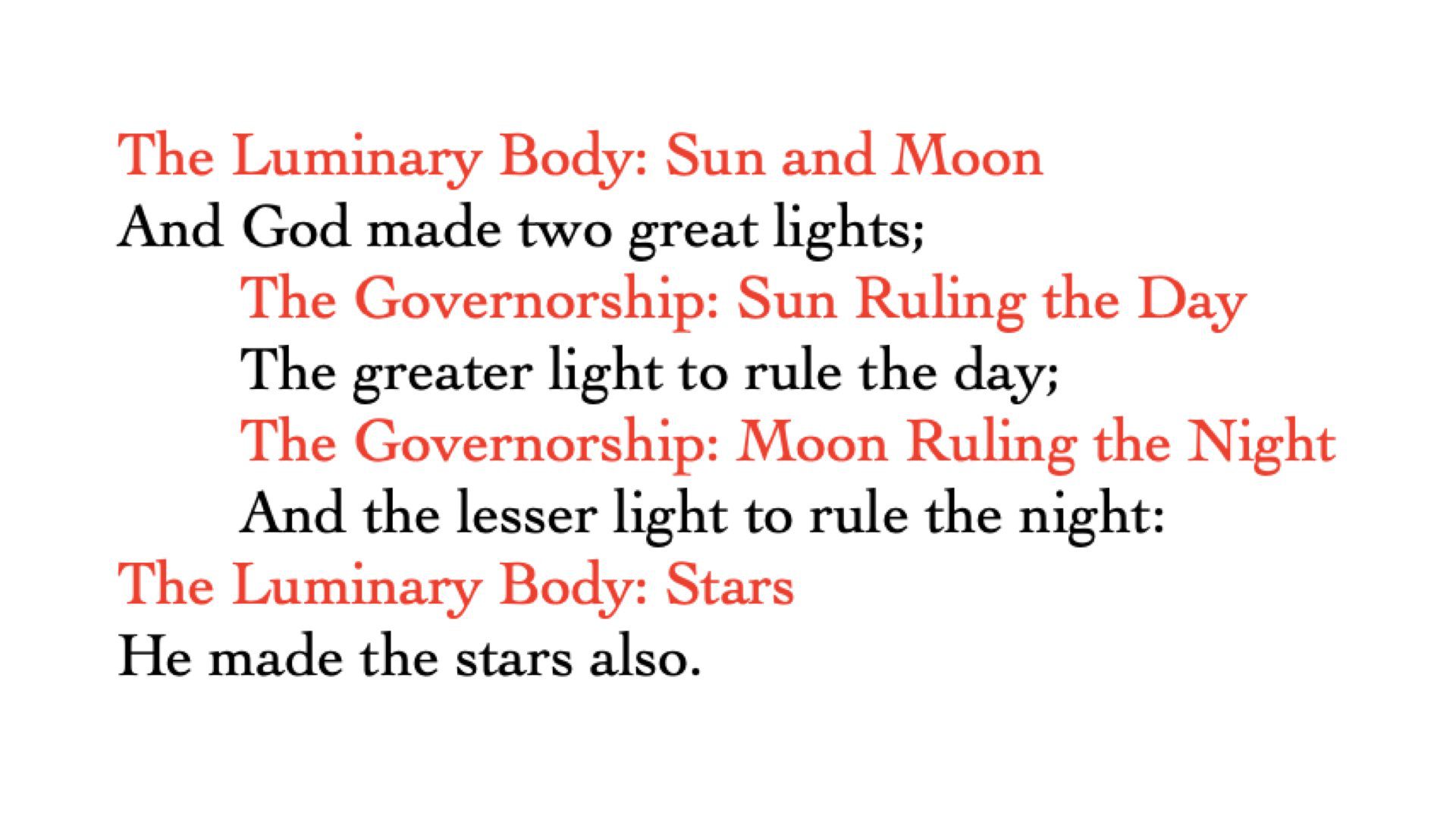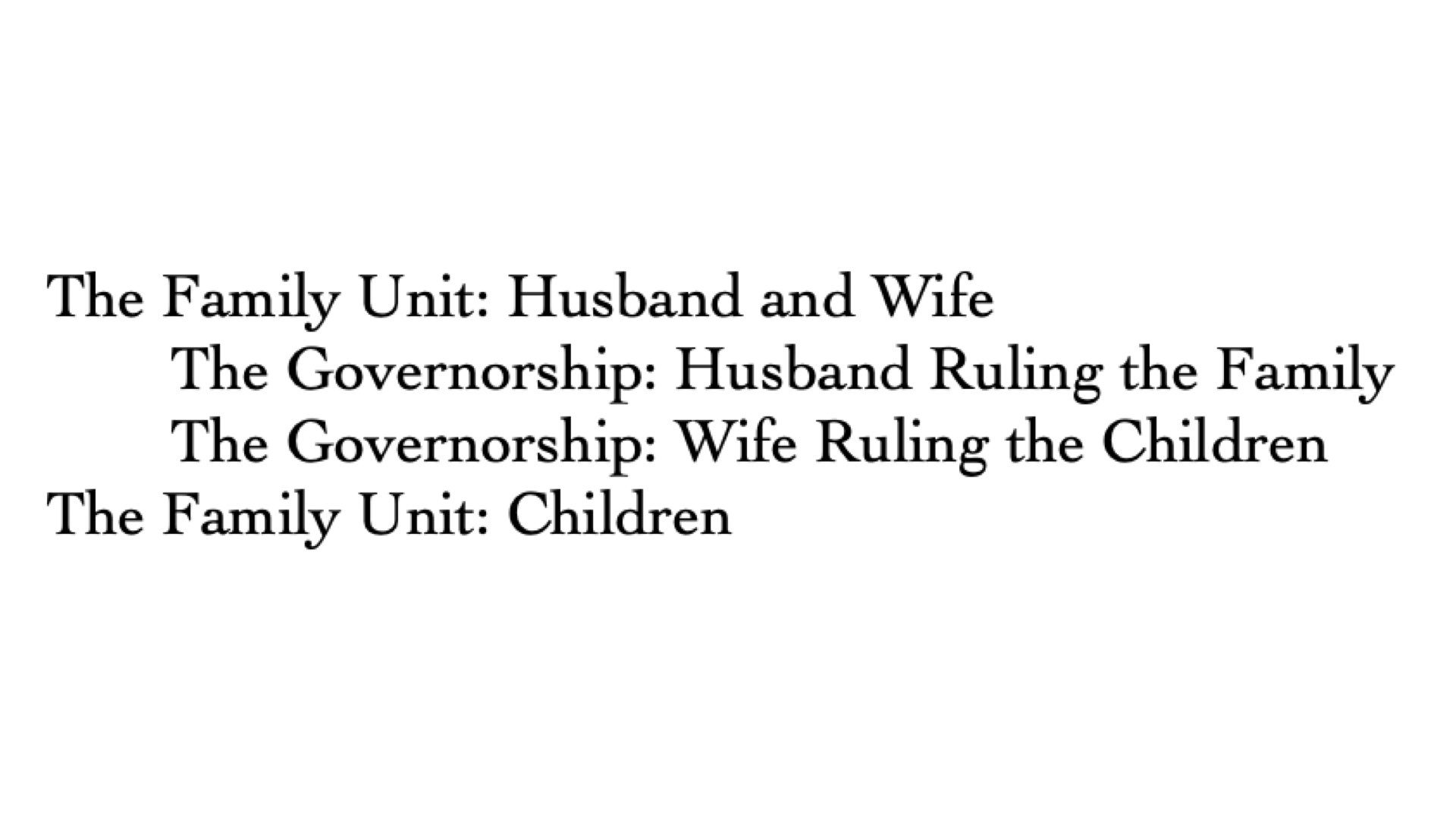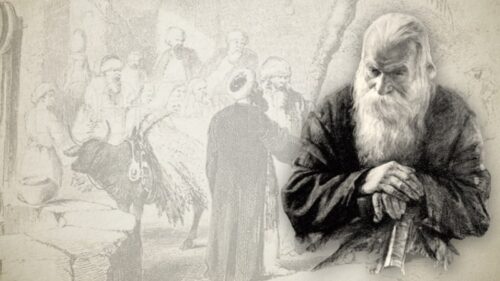
3 The Origin of Eldership
PREFACE
1 AN INTRODUCTION TO PLURAL ELDERSHIP
2 IDENTIFYING BIBLICAL ELDERSHIP
In our previous studies, I have set out my understanding of the term elder—that it is an unofficial title of honor given to men and women, who by virtue of their age and experience, are sought after for their wisdom and influence by the younger members of society. That this is the basic meaning of the Hebrew and Greek terms, together with the universally accepted use of the term in every village and province around the world, cannot be disputed. It is only among certain Christian denominations the meaning has been changed to include an official title of appointment representing one and the same office as bishop/pastor. I believe this is an abuse of the term which has led to erroneous views of church governance.
In addition to presenting the basic definition of the term, I also provided an overview on how the Hebrew and Greek terms appear in the Old and New Testament Scriptures. They have been variously translated into English as elder, elders, eldest, great, nobles, mighty, captain, princes, senators, old (men), ancients, aged, grayheaded, firstborn, chief, &c. However, not once have the terms been translated “bishop” or “pastor”, which should serve as a red flag to every honest Bible reader seeking to understand the subject without reading into the term preconceived ideas.
In addition to providing an overview on how the terms appear in the Scriptures, I also set forth a number of compelling reasons why the Jewish synagogue is not the prototype of the church, and therefore the Reformed Baptists’ construct of eldership cannot be traced to that institution.
The question which I propose to answer for this study is this: If eldership is not to be traced to the Jewish synagogue, then what is its origin? Where does eldership begin within the context of Scripture? How far back can we trace it in history?
To answer this question, it is helpful to employ a basic principle of textural interpretation—The First Mention Principle. For this principle, Arthur Pierson observes, “The first occurrence of a word, expression, or utterance, is the key to its subsequent meaning, or it will be a guide to ascertaining the essential truth connected with it.”
Quite often throughout the Scriptures, God condenses in the first mention of a word or truth the essential elements with which that truth will be connected throughout the whole of Scripture. For example, the sinner’s redemption is first recorded in Genesis 3:21, when God clothed Adam and Eve with coats of skins—forthwith, the sinner’s redemption is connected from that point forward with an atonement made by a sacrifice through the shedding of blood, pointing to and accomplished by the Lord Jesus Christ. Let us then apply this principle to the subject of eldership.
First, the Hebrew term zaqen. This is the most common word found in the Old Testament translated ‘elder’, identified in Strong’s Hebrew Dictionary by number 2205, meaning: “Old: Aged, ancient (man), elder(est), old (man, men and…women).” According to Holman Illustrated Bible Dictionary, “In the OT, “elder” usually translates the Hebrew word zaqen from a root that means “beard” or “chin.”
Now, if the book of Job is the oldest historic piece of literature in the Old Testament, then let us see how the term is first used in that book—Job 32:4: “Now Elihu had waited till Job had spoken, because they were elder than he.” If, on the other hand, we choose to go with Genesis as the first book in the chronological order of the Old Testament, then let us see how the term appears there—Genesis 18:11: “Now Abraham and Sarah were old and well stricken in age; and it ceased to be with Sarah after the manner of women.” Although the Hebrew term is translated ‘elder’ in the book of Job, and ‘old’ in the book of Genesis, yet both references are quite clearly connected with one’s seniority or age. And, you see, it is my contention, based on the First Mention Principle, that this basic meaning of the term does not change throughout the Old and New Testament Scriptures. While it is true there are groups of men (and sometimes women) who are collectively called elders, and these groups are sometimes represented as having an official function in society or national government, yet the term itself does not properly identify the exact office or function they filled. It is simply a generic title given to members of society, honoured by virtue of their age. However, if persons were elected or appointed to a public office or function, they were selected among the elders of the people—and as such, these elected officials, while retaining the title, ‘elder’, were given additional titles representing their office and public function. So, for instance, they were elders and chieftains, or elders and captains, or elders and counsellors, or elders and accountants. The term elder remained a generic title for all older people, whereas the terms captain, counsellor and accountant identified the specific offices they filled.
This idea of eldership, of course, is not unusual. A community honoring one’s elders transcends the Jewish nation, as it has been part and parcel with all social classes in every nation throughout history. For instance, we read of elders being honored by the Egyptians during the days of Joseph, for he “went up to bury his father: and with him went up all the servants of Pharaoh, the elders of his house, and all the elders of the land of Egypt.” Visit any country today, enter its villages, and you will find community elders recognized and functioning in precisely the same way we find them functioning in the Old and New Testament Scriptures. Within the context of a church, each congregation was made up of several families; each family was represented by the household head (elder); these household heads (elders) would have represented their family units and therefore they (the elders, household heads) would have been the presbytery (council of elders) within the church, advising one another and deciding matters on behalf of their family units. These elders were not elected to an office—they were the male (and female) members of the church whose age and experience set them apart with honor and distinction. However, if God was pleased to call one of the household heads (elders) to preach, then that man would be appointed the bishop (an office) of the church, taking the oversight of the congregation. Yes, he was an elder by default, but a bishop by calling and office. So while he was legitimately called an ‘elder’ and a ‘bishop’, the two terms were not synonymous. It is in this way each church had a plurality of elders (household heads), overseen by one bishop. Now, I have perhaps jumped ahead of myself in presenting this explanation on how biblical eldership functions within a church, but I suppose it is good to state it up front so that you get the idea what eldership looks like within the church. I actually have more to say about this point in a few minutes.
Alright, well that is how the most commonly used Hebrew term first appears in the Old Testament. But there is another Hebrew term used before Genesis 18. The word is gadowl, and in Strong’s Hebrew Dictionary is identified by number 1419, meaning “Great (in any sense); hence, older.”
In Genesis 10:21, the term is translated ‘elder’—“Unto Shem also, the father of all the children of Eber, the brother of Japheth the elder, even to him were children born.” Japheth is clearly identified as the older brother, and even given the name, “the elder”, as if it were some type of official title (though it wasn’t). It was merely a title of respect given to the one whose age exceeded the others. (See also Gen 27:1,15,42; 29:16; 44:12; 1 Sam 17:13,14,28; 18:17; 1 Kings 2:22; Job 15:10; Ez 16:46,61; 23:4)
In Genesis 1:16, the term is translated ‘great’—“And God made two great (1419) lights; the greater (1419) light to rule the day, and the lesser (6996) light to rule the night: he made the stars also.” Although this passage has never been (at least to my knowledge) set forth as a foundational text for the doctrine of eldership, it happens to be the first mention of the subject in the Word of God. Before I comment on this verse, allow me to read another text which uses the same Hebrew term, and may shed light upon its meaning—2 Samuel 19:32: “Now Barzillai was a very aged (2205) man, even fourscore years old: and he had provided the king of sustenance while he lay at Mahanaim; for he was a very great (1419) man.” Barzillai is said to be a very aged (or old) man (Hebrew, zaqen); we are then told that he was able to provide refreshment for the king while he resided at Mahanaim, because Barzillai was a very great man (Hebrew gadowl). This term ‘great’ would seem to indicate that he had great wealth and prestige as the result of his age (eldership)—having lived many years, he naturally accumulated much wealth out from which he used to provide sustenance to the king. Henceforth, the various Hebrew terms for elder are tied together with the same idea—that of respect and prestige bestowed upon those, who by virtue of age or seniority, have earned for themselves a good name and much influence within their local community.
Now, in Genesis 1:16, this term ‘great’ is used for the sun and the moon—“God made two great lights.” Both lights are great, or elder.
Each of these lights is then distinguished from the other—“the greater light to rule the day” and “the lesser light to rule the night.” This is the first record in Scripture where God has delegated authority to His creative works—the sun and the moon are appointed by God to rule. The sun (the greater, or elder light) will rule or govern the day; the moon (the lesser, or younger light) will rule or govern the night. The Hebrew term translated ‘lesser’ is qaton, identified in Strong’s Hebrew Dictionary by number 6996, meaning—“Literally (in quantity, size or number) or figuratively (in age or importance):—little (one), young(-er,-est).” Henceforth, the counterpart to ‘greater’ (elder) is ‘lesser’ (younger). This, I say, is the quintessential meaning of the term elder. Of course, the plural elder activists will make the counterpart of elder (clergy) to be that of the people (laity). This sanctimonious and ecclesiastical separation between clergy and laity was bred by the Roman Church and is adopted by well-meaning yet mistaken plural elder advocates. Rather, in every church there are older people (elders) and younger people, and I am arguing this is the basic meaning of the term when reference is made to elders in the New Testament churches. Take, for instance, the exhortation of Peter in the fifth chapter of his first letter—“The elders which are among you I exhort, who am also an elder…likewise, ye younger, submit yourselves unto the elder. Yea, all of you be subject one to another, and be clothed with humility: for God resisteth the proud, and giveth grace to the humble.” This passage has been subject to much abuse as the first four verses are invariably interpreted as referring to the officers (bishops/pastors) of the church. However, when the fifth verse is added to the first four, then suddenly the basic structure of eldership, as outlined in Genesis 1:16, comes to light. The ‘elders’ are those of greater age, the ‘younger’ are those of less age. The elders Peter exhorted in the first four verses were the household heads of the churches, without a calling to preach and therefore not serving the office of bishop; yet, because these churches were without a bishop, Peter was encouraging the household heads (elders) to DO THE WORK OF A BISHOP, until God was pleased to call a man to serve that office. I hope you see, my friends, the importance of forming right views of eldership, for it has significant ramifications on how we understand the Scriptures and how the New Testament churches functioned.
We are informed by the closing statement of Genesis 1:16 that God also made the stars—“he made the stars also.” These stars are not appointed to serve as governors, though they do belong to the night, under the immediate supervision of the moon.
Thus, we have in Genesis 1:16 the following structure:

And now, from this textual structure of Genesis 1:16, together with the luminary bodies that fill the sky, we are able to extract the basic structure of the family unit:

The sun represents the husband, who is the elder of the family (household head), and is responsible for governing wife and children. The moon represents the wife, who is also an elder of the family (household head), but who serves in the light of her husband’s leadership and takes special oversight of the children. The stars represent the children, who are under the governorship of their father and mother, brightly shining and adorning the family unit.
With this in mind, I contend that eldership is inseparably connected with the family unit. Eldership only makes sense within the context of the family unit. It has often been said, the family unit is the microcosm of society at large. Henceforth, whatever may be true of elders on a national platform, or within the context of a local community or particular church, is reflective of how they function within the basic structure of the family unit. At the end of our previous study, I set out several reasons why I do not believe the Jewish synagogue is the prototype of the Christian church. At the end of this study, I am arguing the Christian church has been modeled on the basic structure of the family unit. Eldership within the family unit, as illustrated in Genesis 1:16, is reflective of eldership within the Christian church. What the sun is to the moon and stars, the husband/father is to the wife/mother and children. What the husband/father is to the wife/mother and children, the bishop/pastor is to the deacons and congregation. The one-bishop/pastor system of church governance is based upon the one-husband/father system of family governance. Family units and household heads (elders, husbands/fathers and wives/mothers) are the focal point of congregational activity—not an elite group of men with ‘clergy powers’ lording over God’s heritage. One-bishop/pastor ‘small government’ works with the congregation serving Christ; plural eldership ‘big government’ works on behalf of the congregation serving Christ. Plural elderships do for the congregation, what the congregation is responsible to do for itself. One of the reasons I do not like plural elderships is because they undermine the responsibility and hinder the liberty of the so-called ‘laity’ (church members).
Additional Notes:
1. Eldership begins with God, as it is He who delegates authority to the sun and moon, and to the husband/father and wife/mother, and to the bishop/pastor and deacons. Earthly government, therefore, does not supersede the government of God. (Romans 13)
2. Husband/father is an elder by virtue of his age, but a husband/father by virtue of his office; wife/mother is an elder by virtue of her age, but a wife/mother by virtue of her office. While it is not wrong to call father and mother ‘elder’, yet children invariably refer to them by the title representing their office—father and mother. Within the church, while it is not inappropriate to refer to the bishop/pastor as elder, yet it is more accurate to call him by the title representing his office—bishop or pastor. There is, for instance, a denomination of Baptists who insist the bishop/pastor be called elder, because elder, they say, is the most frequently used term in the New Testament for that office. With all due respect, they are mistaken. Just as it is more appropriate for a child to use the terms father and mother, rather than elder, so it is more appropriate for church members to use the terms bishop or pastor, rather than elder.
3. The first mention of eldership in Genesis 1:16 includes the idea of plurality (sun and moon are both elders), but a different measure of authority is delegated to each. The sun and moon serve different ‘offices’, though both are equally ‘great’. The same is true within the family unit of husband/father and wife/mother. The husband/father and wife/mother serve different offices, though both are equal elders. The same is true within a church. The bishop/pastor and deacons serve different offices, though both are equal elders (see 1 Timothy 3:1-15). Eldership is generic and equal to all by virtue of age; the office an elder may serve is unique with variant measures of authority.
4. Plural eldership activists often point out the dangers of the one-bishop/pastor system—(1) “One pastor cannot fully oversee every aspect of church life.” Well, should we also say that one sun cannot fully oversee the day, or one husband/father cannot fully oversee his wife and children? God established the system. I believe the one-pastor system is also established by God, and therefore He knows best on whether one pastor is capable of fully overseeing every aspect of church life. In any case, I do not see how a plural eldership solves this problem—at no time will one pastor or a multiple number of pastors fully (or perfectly) oversee every aspect of church life. (2) “One pastor may detract from the glory of Christ.” Just because a pastor may abuse his position, does not mean the system itself is flawed. The one-pastor system has many benefits and serves a church far more effectively than a plural eldership. Having said that, I have seen my fair share of plural elderships who eclipse the glory of Christ to a far greater degree than a single pastor. (3) “One pastor may abuse his position by lording over the church.” Are not plural elderships capable of abusing their position by lording over the Lord’s people? If the problem of pastoral abuse is sin in the heart, then by multiplying the pastors, does this not increase the risk and danger? I know of several churches that are ‘man-handled’ by an overzealous and authoritarian oligarchy of elders. If abuse is possible in the one-bishop system as well as the multi-bishop system, then which problem church would you prefer to belong—the one with only a single abusive leader (the bully) to remove, or the other with a team of abusive leaders (the gang) to remove? The fact is, plural eldership activists are afraid of strong leadership and despise a God-called man who may shine bright as a preacher and leader. They want to clip his wings and put his fire under a bushel. They also feel they are the God-appointed policemen to keep the God-called preacher in line, both morally and doctrinally. But where in Scripture do we find the office of God ordained policemen? Those who ‘police’ the bishop/pastor are the deacons and entire congregation, not as an office, but through the regular activity as one body in Christ. The church itself is responsible to keep check on the bishop, both morally and doctrinally, just as the bishop is responsible to do likewise for those under his care. This responsibility should not be delegated to an elite group of men whose elevation to the ‘clergy’ often serves to puff up egos and hinder the God-called man from serving Christ instead of them. Plural elderships are sanctuaries for weak leaders. Come out from among them, my fellow preachers; quit you like men, and be strong.
Jared Smith served twenty years as pastor of a Strict and Particular Baptist church in Kensington (London, England). He now serves as an Evangelist in the Philippines, preaching the gospel, organizing churches and training gospel preachers.
Jared Smith's Online Worship Services
Jared Smith's Sermons
Jared Smith on the Gospel Message
Jared Smith on the Biblical Covenants
Jared Smith on the Gospel Law
Jared Smith on Bible Doctrine
Jared Smith on Bible Reading
Jared Smith's Hymn Studies
Jared Smith on Eldership
Jared Smith's Studies In Genesis
Jared Smith's Studies in Romans
Jared Smith on Various Issues
Jared Smith, Covenant Baptist Church, Philippines
Jared Smith's Maternal Ancestry (Complete)





